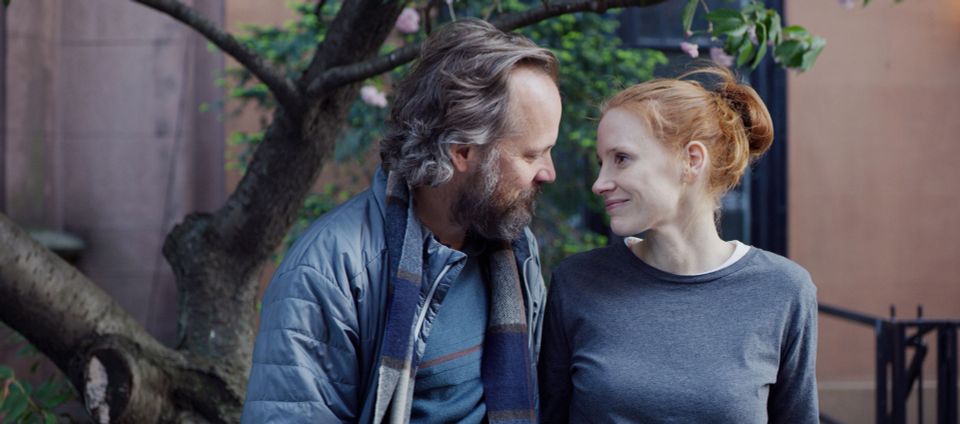Memory

Take a look in advance
Sylvia (Jessica Chastain), is an alcoholic who has stayed off the booze for thirteen years. She and her teenage daughter Anna, live in a spacious, sun-drenched apartment in Brooklyn. The door to their apartment has multiple locks. Every time Sylvia comes home, she secures the locks and turns on the alarm. She is hyper vigilant about Anna's behavior and forbids the teenager from going near alcohol or boys.
One evening, Sylvia and her sister, Olivia, attend a reunion of their ...
Sylvia (Jessica Chastain), is an alcoholic who has stayed off the booze for thirteen years. She and her teenage daughter Anna, live in a spacious, sun-drenched apartment in Brooklyn. The door to their apartment has multiple locks. Every time Sylvia comes home, she secures the locks and turns on the alarm. She is hyper vigilant about Anna's behavior and forbids the teenager from going near alcohol or boys.
One evening Sylvia and her sister, Olivia, attend a reunion of their high school. Sylvia looks visibly uncomfortable. When a man - Saul (Peter Sarsgaard) - approaches her, Sylvia storms out. He follows her into the subway and all the way to the front door of her building, where he remains at the window even as it begins to pour. The next morning, Sylvia finds him shivering, wet and barely responsive, sitting on the ground in front of her house. It turns out that Saul has incipient dementia and is under the care of his brother Isaac, with whom he lives.
Because meeting Saul was traumatic for Sylvia, she takes Saul to a park to ask why he was following her. Saul says he doesn't know and can't remember meeting her before, which further upsets her. Sylvia tells Saul that in high school some of their classmates got her drunk and sexually abused her. Sylvia accuses Saul of participating, but he insists that he does not remember.
Slowly, a relationship develops between these two mangled people, both of whom no longer know how exactly to rely on their memories. Sylvia's sister manages to convince Sylvia that it was impossible that Saul was one of her attackers at school, because he was not at their school at the time. Sylvia's newfound openness about what happened at the time has far-reaching consequences within her family. Sylvia becomes genuinely comfortable with Saul, whom she finds less threatening than other men. Conversely, Saul becomes very fond of Sylvia. Saul's brother is not happy about this, which leads to problems on his side of the family.
There have been several films about dementia in recent years that have often featured characters in the final stages of the disease, when the grief is evident and the toll of dementia is seen through the eyes of affected family members. But in Memory, Saul is not yet at that point. He still "is" there and still has freedom of choice. He still craves love and affection. What matters is how he grasps his slipping reality. Questions arise about consent and autonomy. How do we respect the wishes of someone who will one day be unable to put his demands into words? What is the moment when a person stops internalizing his experiences as we see with Sylvia.
Memory has no direct answers to those questions. But the film shows that even if a people are damaged, they are still entitled to receive the kind of support that does not belittle, but treats them with a dignity that goes beyond their trauma. Making this insightful was director Franco's intention, in addition to showing that behavior is often rooted in events that exist only in memory.


